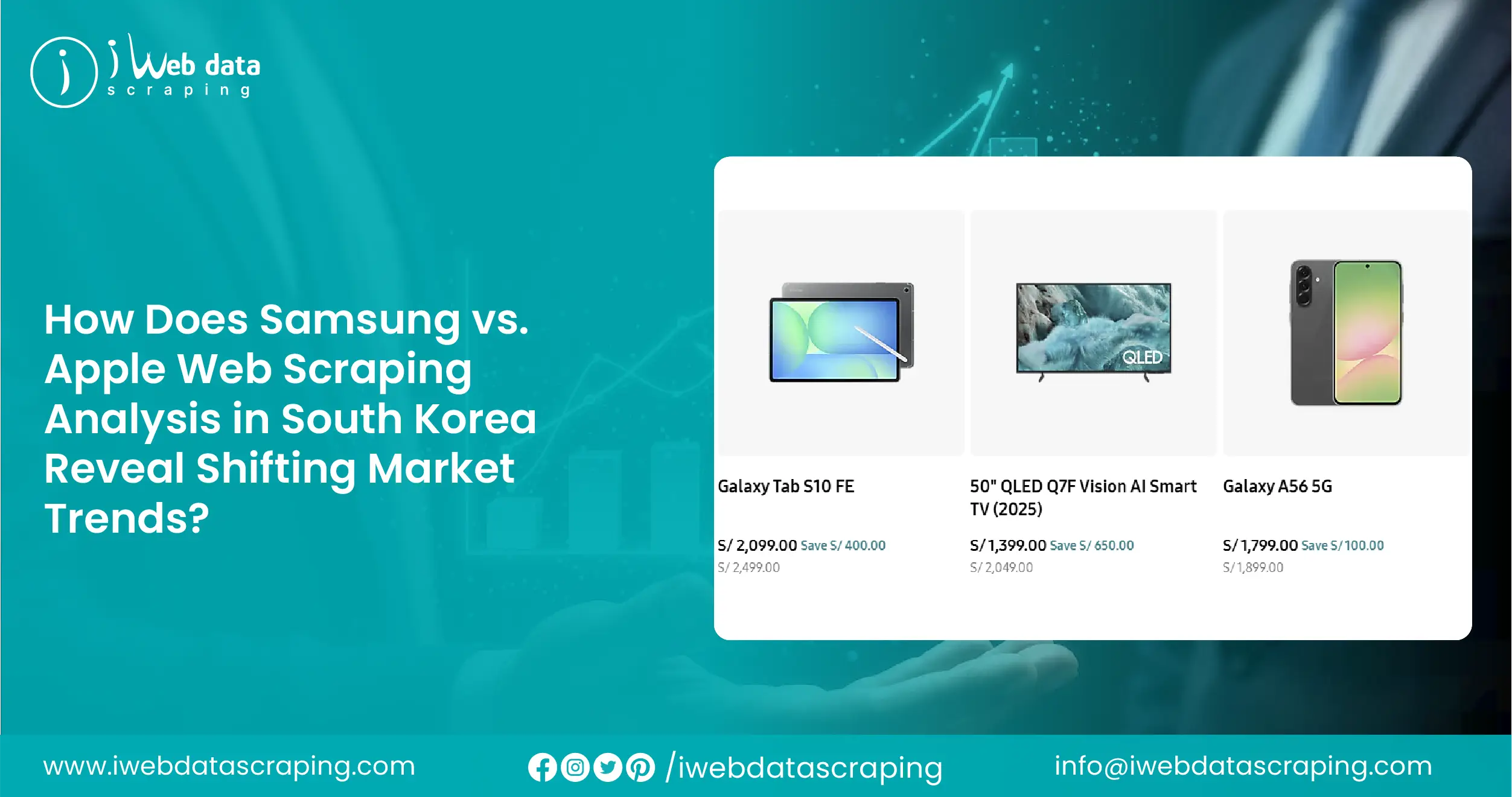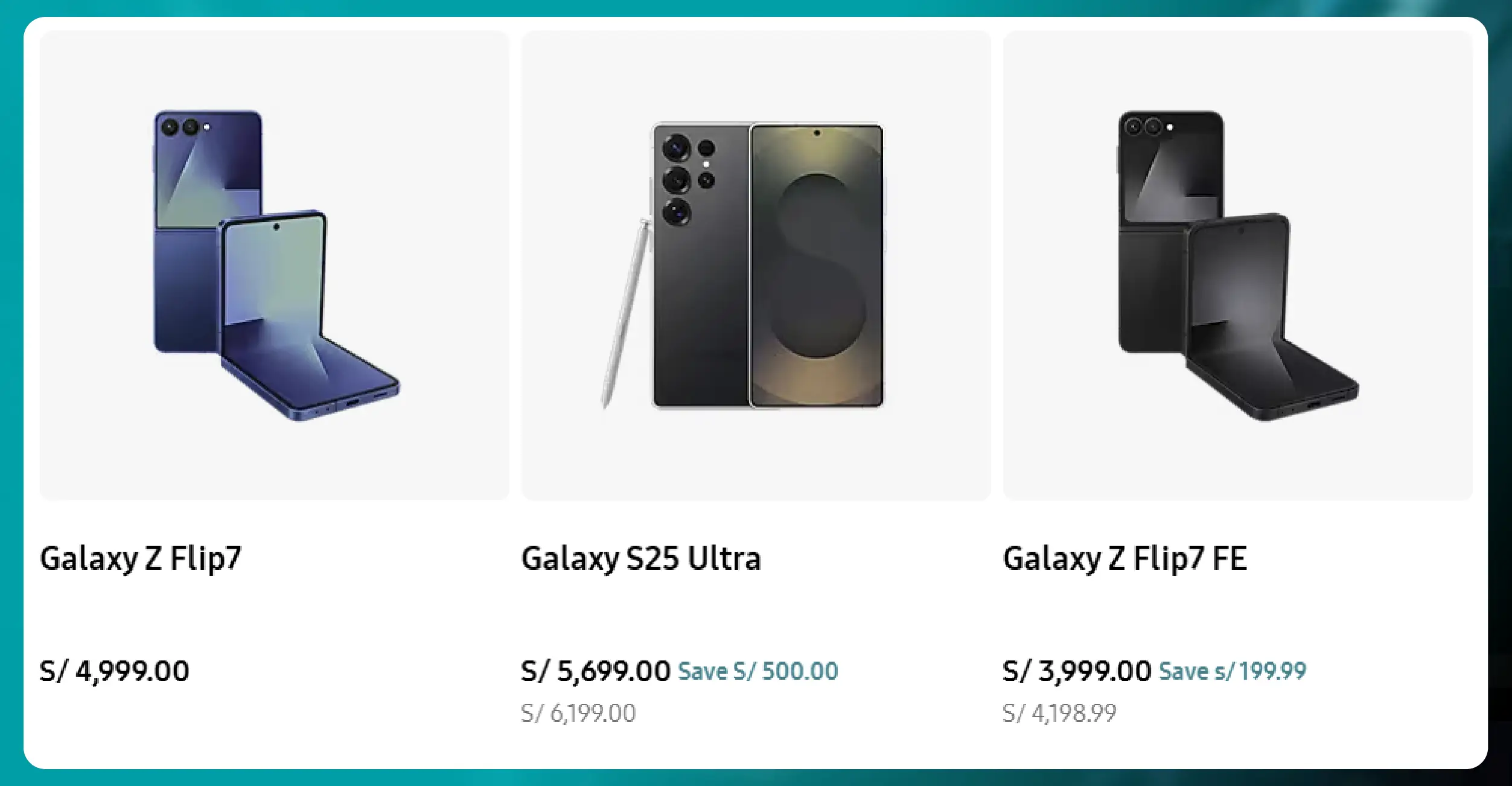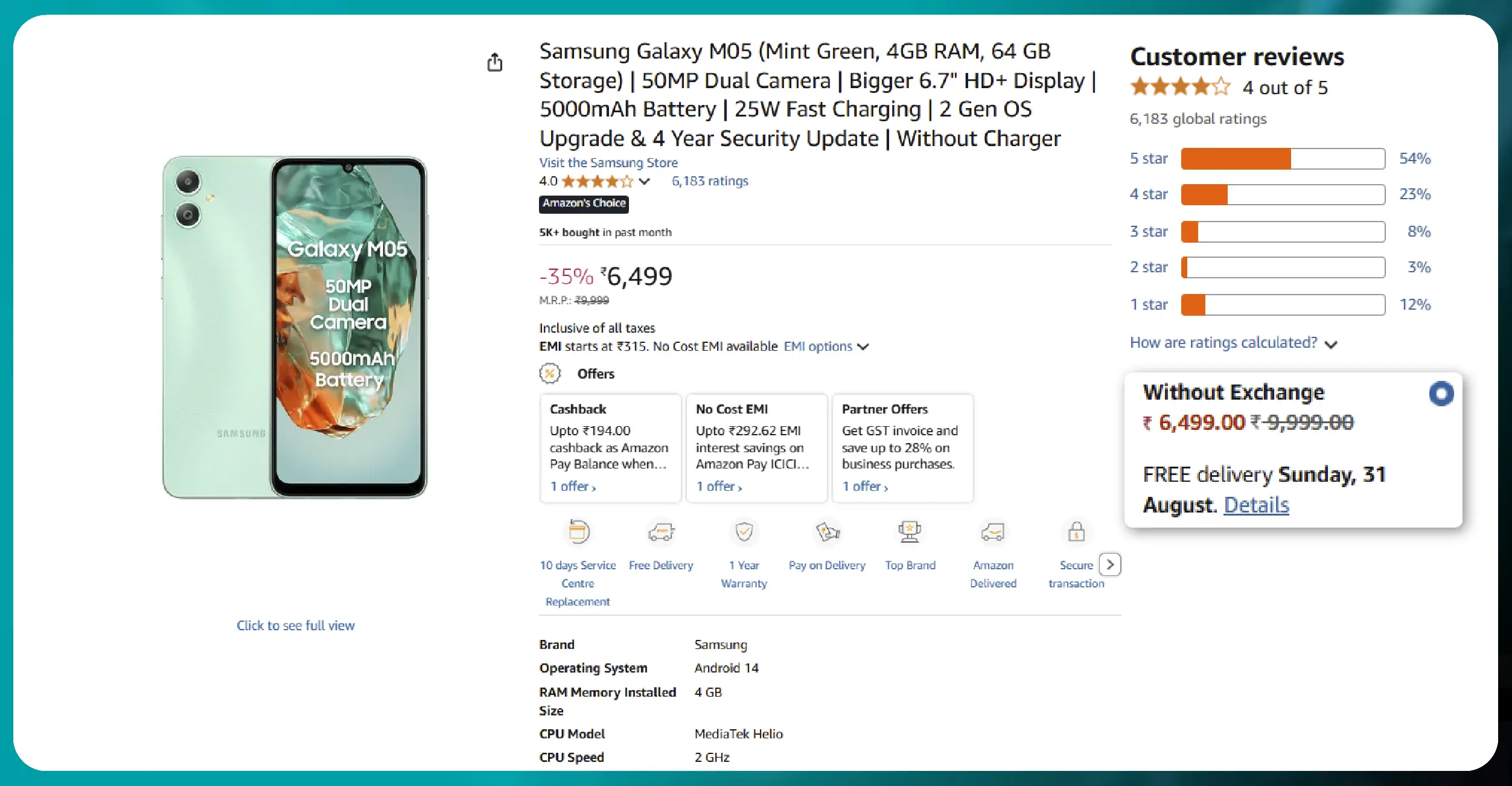

The South Korean smartphone landscape has long been dominated by two tech titans—Samsung and Apple. Both brands have cultivated deep market penetration, loyal user bases, and distinctive strategies to shape consumer preferences in the region. In recent years, businesses and researchers have increasingly turned to Samsung vs. Apple Web Scraping Analysis in South Korea to understand the competitive dynamics, shifting consumer behavior, and evolving market trends.
By leveraging advanced scraping methodologies, it is possible to collect and analyze datasets covering pricing, availability, sales performance, and digital sentiment. From e-commerce portals to social media chatter, structured data delivers invaluable insights that drive informed decision-making. The introduction of Web scraping Samsung vs Apple market 2025 has also opened avenues to project future competition scenarios, where demand patterns and technological adoption rates can be mapped against real-time datasets.
Meanwhile, tools focusing on Web scraping Samsung vs Apple Google Trends Korean data enable businesses to study how consumer search interest fluctuates over time, highlighting brand popularity and product relevance in South Korea’s highly digitized environment. These insights are critical for manufacturers, retailers, and marketers aiming to stay ahead of the curve.

South Korea, home to Samsung’s global headquarters, presents one of the most fascinating battlegrounds for the smartphone industry. Samsung commands strong brand equity domestically, with broad product offerings across multiple price tiers. However, Apple continues to enjoy immense popularity among younger consumers, professionals, and trend-conscious buyers, primarily through its premium iPhone series.
This rivalry is not just about device specifications—it extends into ecosystem preferences, app store usage, accessory ecosystems, and digital experiences. By conducting Samsung vs Apple consumer preference South Korea analysis, businesses can uncover the subtle differences shaping purchase behavior:
Scraping data related to online discussions, ratings, and reviews allows a detailed understanding of these consumer dynamics.

Web scraping has emerged as a transformative tool in analyzing market competition. For South Korea’s smartphone sector, it enables the collection of diverse datasets from multiple digital platforms. These include e-commerce portals, Google Trends, social media platforms, and tech review forums.
Through Korean smartphone market web scraping insights, stakeholders gain visibility into:
This combination of structured insights empowers stakeholders to align marketing, production, and supply chain strategies with consumer behavior.
Understanding digital interest in brands and products is no longer optional—it is essential. Google Trends data highlights search volumes, comparative brand interest, and event-driven spikes in consumer curiosity. Through Google Trends web scraping for South Korea Smartphone market analysis, companies can track:
These findings often correlate strongly with actual sales and can be predictive of market outcomes. By continuously scraping and analyzing search data, businesses can plan inventory, align promotional campaigns, and anticipate competitor moves.
The smartphone industry is evolving rapidly, driven by AI integration, foldable devices, and 5G adoption. In this environment, Web scraping South Korea Smartphone market trends 2025 provides the foundation for forecasting future scenarios. Some key insights include:
These forecasts, when backed by structured scraping insights, help brands, retailers, and analysts prepare for the evolving Korean smartphone ecosystem.
E-commerce platforms like Coupang, Gmarket, and 11st are vital channels for smartphone sales in South Korea. By analyzing an Ecommerce Product Ratings and Review Dataset, businesses can detect consumer satisfaction, complaints, and feature preferences at scale. Such datasets reveal:
Scraping and structuring this data allows businesses to understand not only what consumers buy but also why they prefer specific models.
Unlock deeper market clarity with our eCommerce Data Intelligence Services and power your strategy with smarter, data-driven insights today!

Traditional web scraping focuses on data collection, but integrating AI and machine learning takes it a step further. AI-driven scrapers can categorize reviews, detect sentiment, and predict consumer behavior more accurately.
For example:
This level of automation ensures scalable, accurate, and timely intelligence across vast datasets.
A practical application of scraping methodologies demonstrates their power. Consider a scenario where a research team collects data across multiple platforms:
The results could highlight that while Apple dominates premium brand perception, Samsung maintains stronger mid-range and foldable device adoption. Additionally, sentiment scraping might reveal that Apple’s service ecosystem drives loyalty, while Samsung’s hardware innovation generates excitement.
1. Customized Data Collection Solutions
We design tailored scraping solutions that extract targeted smartphone data from Korean e-commerce platforms, social networks, and search engines, ensuring brands gain high-quality insights for competitive analysis and consumer trend tracking.
2. Advanced AI-Powered Insights
Our scrapers integrate AI models for sentiment analysis, product feature categorization, and predictive analytics, enabling businesses to forecast demand and understand market dynamics more effectively than traditional research methods.
3. Scalable Enterprise Solutions
We provide scalable scraping architectures that can handle vast amounts of data in real-time, ensuring large enterprises stay updated on market changes and consumer behavior at scale.
4. Regulatory Compliance & Ethical Practices
Our solutions adhere to South Korean data protection and compliance standards, ensuring businesses access competitive intelligence ethically without violating local digital regulations or consumer privacy rights.
5. Actionable Visualization Dashboards
We transform scraped data into actionable dashboards, enabling stakeholders to make informed decisions, track performance, and uncover insights into the ongoing Samsung vs Apple smartphone rivalry in South Korea.
The South Korean smartphone market remains one of the most competitive in the world, with Samsung and Apple vying for dominance. By utilizing advanced scraping techniques, businesses can access unparalleled insights into pricing, consumer sentiment, and competitive strategies.
Incorporating structured datasets such as the Ecommerce Product Dataset, review ratings, and Google Trends data allows organizations to anticipate consumer shifts and market trends. Whether through eCommerce Data Intelligence Services, leveraging the power of scraping equips brands to stay ahead in this dynamic industry.
Ultimately, the E-commerce Data Extraction Services provides a clear window into how consumer preference, cultural influence, and technological innovation continue to shape the future of smartphones in one of the world’s most digitally advanced nations.
Experience top-notch web scraping service and mobile app scraping solutions with iWeb Data Scraping. Our skilled team excels in extracting various data sets, including retail store locations and beyond. Connect with us today to learn how our customized services can address your unique project needs, delivering the highest efficiency and dependability for all your data requirements.